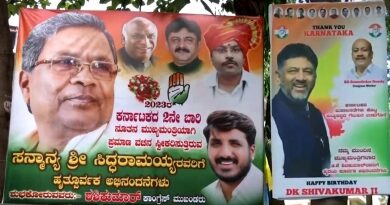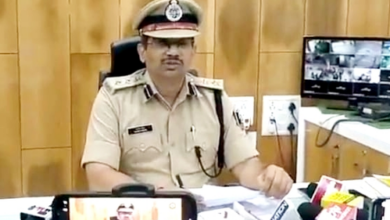
By D N Singh
It is said that democracy needs change. Not in leadership but in their approach towards the people. Even it must go along with changing narratives but not by skirting away from what you are obliged to do.
Gone are the days when the ruling dispensation and the opposition were in an absolute premise of mutual respect although with differing ideologies of the party they belong to.
AS this election year reaches its calendar end, the final moment has come to assess George Orwell’s ”1984” against the political product. There was plenty of ”newspeak” and ”double-think” to go around – either side of the deficit discussion might serve as a proof text.
Today’s politics and after the results in Karnataka particularly, what comes to mind is the state of absolutism by either rights or Left wingers who read the pulse of the people.
But it is not easy to recover from the absolutism when a party enjoys continuous mandate to rule and politicians never care to read that people also do not take any absolute or arrogance kindly for long.
Poll politics is not about calling names to each other but matching with the other with a broad charter for the future. Developments are not something leaders should use for self-back patting but try to remain within the realm of politics of obligation to the people.
And importantly, electoral politics based on the division of community or caste or class often imploding in nature. That is what has happened in Karnataka, a situation which is cyclic in nature.
Speeches during the campaigns are required to be balanced between sobriety and progressive. But that is a rare thing now-a-days politics.
People or the voters are intelligent enough to read in between the lines. A clear dichotomy between a party’s leader at the central level and the conditions those prevail in the states.
Modi’s 26 road shows could not cut through the maze at the state which the Prime Minister never had any inkling about. He thought his persona would prevail in Karnataka but it backfired and badly.






